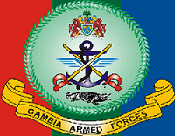Civil Military Relations (CMR), although generally not considered as a separate academic area of study, refers to the relationship between civil societies as a whole and the military organization or organizations established to protect it. To put it bluntly, it describes the relationship between the civilians and the military personnel. Resting on a normative assumption that civilian control of the military is preferable to military control of the state; several theories have been propounded to examine this all-important area. However, the issue can sometimes take an empirical dimension: to explain how civilian control over the military is established and maintained. The topic of civil-military relations involves the study and discussion of a diverse range of issues including, among other things, civilian control of the military, military professionalism, war, civil-military operations, military institutions, etc.
Sun Tzu and Carl von Clausewitz, both of whom wrote extensively on the history of civil-military relations, argued that military organizations are primarily the servants of the state. But one may ask about what actually ignited this ardent debate about these two vital institutions that are so interdependent. Concerns about growing militarism in society, largely coming from the experiences of the first half of the twentieth century, triggered a zealous desire to critically examine the impact of the phenomenon of military organizations within the society. Furthermore, the end of the Cold War led to a new debate about the proper role of the military in society, especially in both the United States and in the former Soviet Union.

I would however like to relate this topic to our domestic situation viz a viz the relationship between members of the security services and the very political representatives they have sworn to serve and protect. Profound and giant strides have been made over the years to improve the once-gloomy picture between these two interdependent institutions. In other words, before the coming into being of the Second Republic under the able-leadership of His Excellency Sheikh Professor. Alhaji Doctor. Yahya AJJ Jammeh, civil-military relations were not cordial. An air of mistrust existed between these two interdependent institutions. The reasons could be numerous but one very important factor that could be attributed to this status quo is the lack of communication between the military and the civil authorities. This created a lot of misunderstanding between civilians and the security services. The rectification of this dismal situation is what leads to the establishment of a public relations department in the armed forces.



